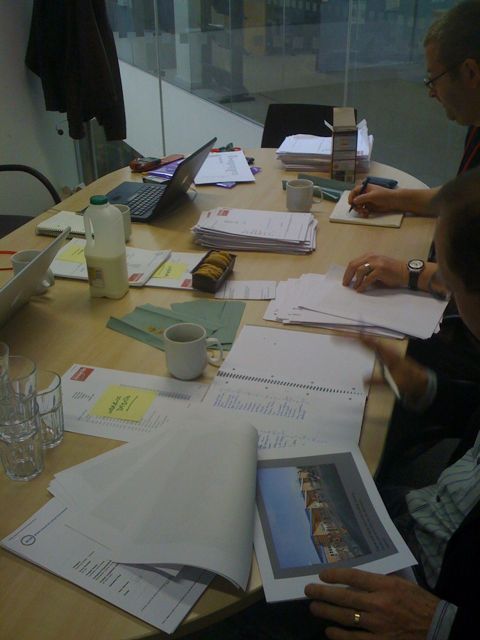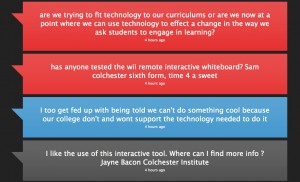One of the nice things I am involved with is being part of the national school design awards evaluation panel. My job is to sift through the entries and comment on how well they have incorporated ICT for learning, and engaged the students as part of the stakeholder engagement process (clue here is the word ‘process’, as opposed to the word ‘event’!)
This year I can honestly say the quality of entries was exceptional. The eventual entries recommended to the final judges were each capable of winning outright. It is fortunate that we didn’t have to make that call!
The awards ceremony is to be held at the Emirates stadium in June and I am really looking forward to if! A chance to put on the black tie outfit, but also to meet the people behind the visions for each school.
The picture shows the evaluation in full swing. It was a tough day, but extremely worthwhile. I can’t say who the winners are (yet) but watch this space… Or the space on the BCSE website 🙂

